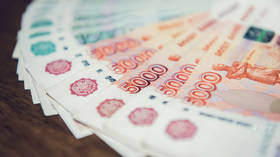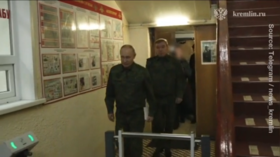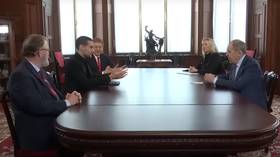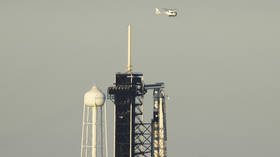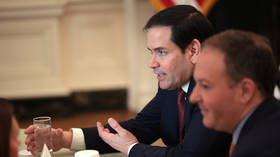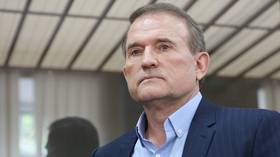China tells US how to help Ukraine
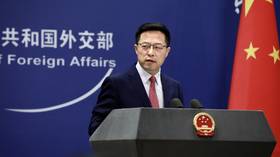
The US is profiting from its campaign to impose anti-Russian sanctions, while even its close allies are suffering, Chinese foreign ministry spokesman Zhao Lijian said during a briefing on Wednesday. The drive for anti-Russian sanctions should be dropped to resolve the Ukrainian crisis, he claimed.
Washington is coercing other nations into imposing sanctions on Russia, but the architects of these measures are careful to avoid any cost to the US itself, the Chinese official pointed out.
“American companies import Russian fertilizers. For Europe, the war and sanctions have brought refugees, capital outflow and energy shortages,” he said. The US put itself in a position allowing it to “profit from chaos,” he added.
Zhao reiterated Beijing’s position that unilateral sanctions – a tool that the US favors in its foreign policy – were harmful for the world economy and could not bring “peace and security,” the stated goals of such restrictions.
“If the US really wants to promote a de-escalation of the situation in Ukraine, it should stop adding fuel to the fire, abandon the cudgel of sanctions, refrain from coercive words and actions and truly encourage peace and talks,” the spokesman said.
His remarks came as the US and its allies ramped up pressure against Moscow in the wake of Kiev’s claims that Russian troops had committed war crimes in Ukraine. Moscow denied the allegations and said they were apparently meant to derail the ongoing attempt to negotiate peace.
Addressing the situation in Bucha, a town northwest of Kiev and the focus of Kiev’s assertions, Zhao said a thorough, independent investigation was necessary to determine what happened there. Images from Bucha were “disturbing,” he said, adding that “humanitarian issues should not be politicized.”
“Any allegations should be based on facts, and all parties should exercise restraint and avoid groundless accusations until the conclusion of the investigation is reached,” he said.
The diplomat expressed Beijing’s support for any initiative aimed at deescalating violence in Ukraine.
Moscow attacked its neighbor in late February, following Ukraine’s failure to implement the terms of the 2014 Minsk agreements, and Russia’s eventual recognition of the Donbass republics in Donetsk and Lugansk. The German- and French-brokered protocols had been designed to regularize the status of those regions within the Ukrainian state.
Russia is demanding that Ukraine officially adopt neutrality and that it will never join the US-led NATO military bloc. Kiev insists Russia’s offensive was completely unprovoked and has denied claims it had been planning to retake the secessionist regions by force.
